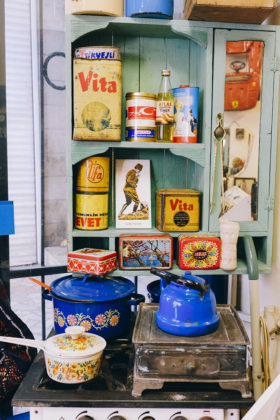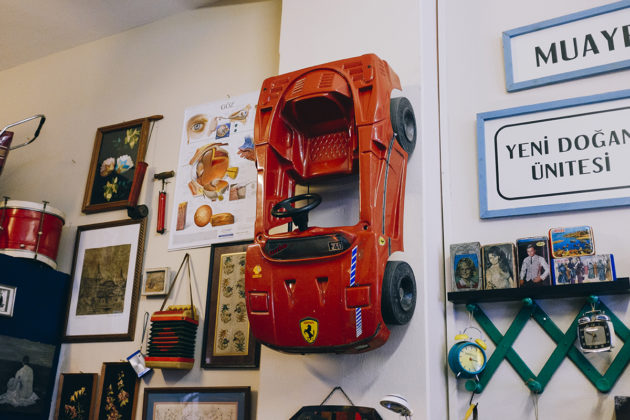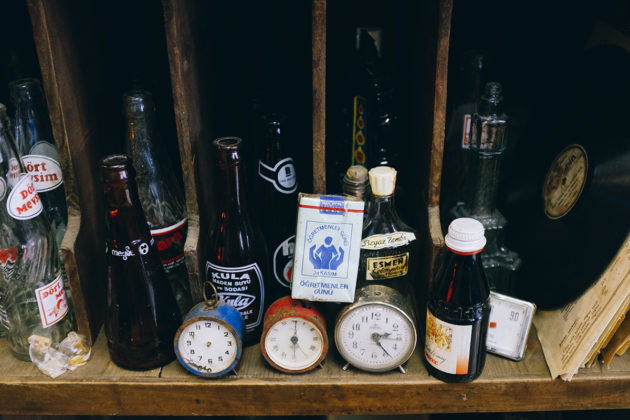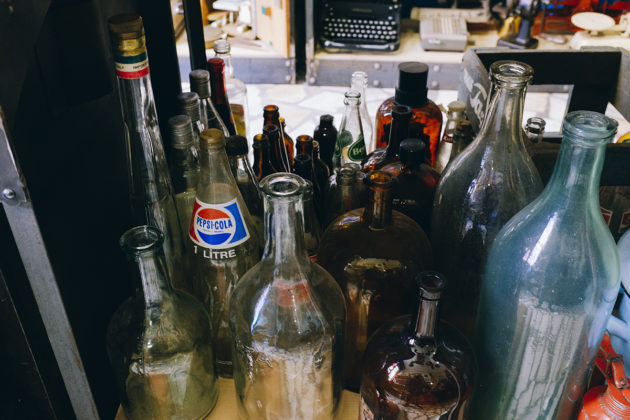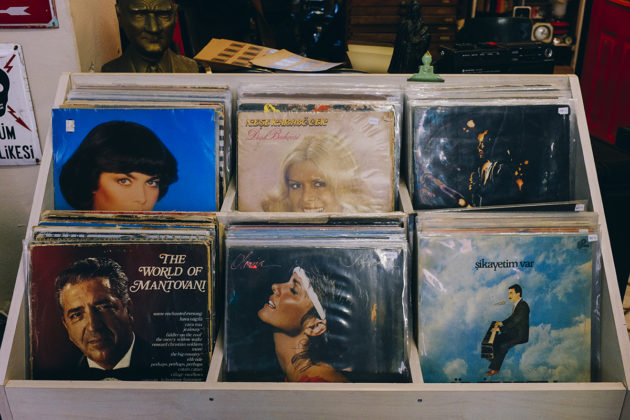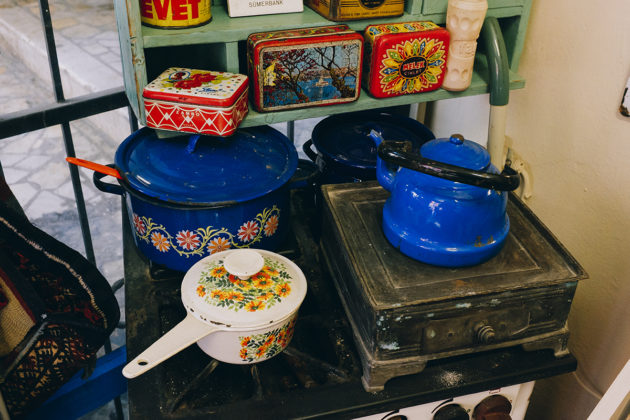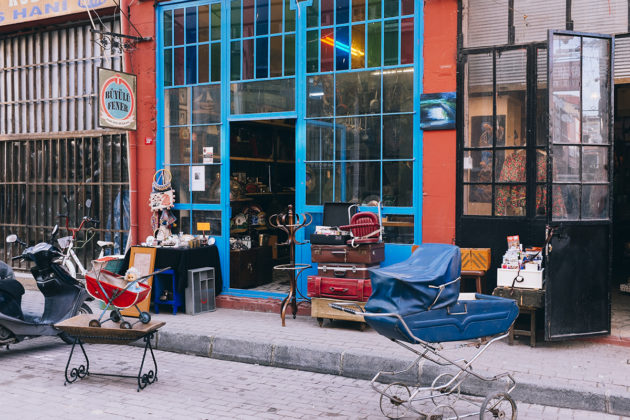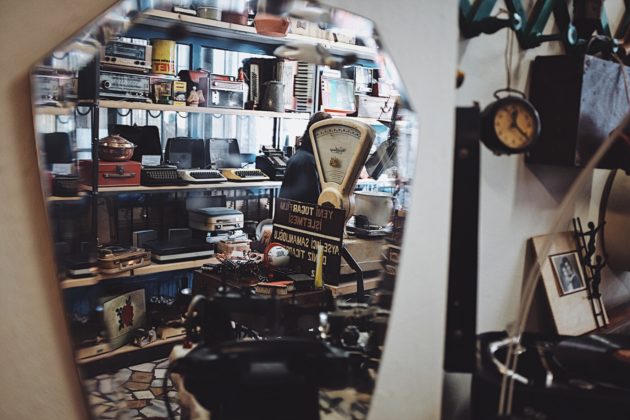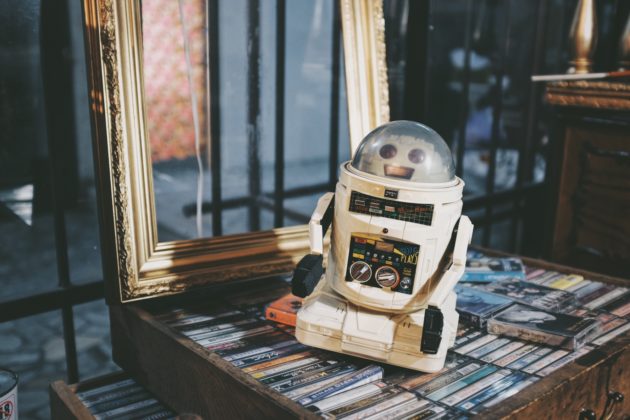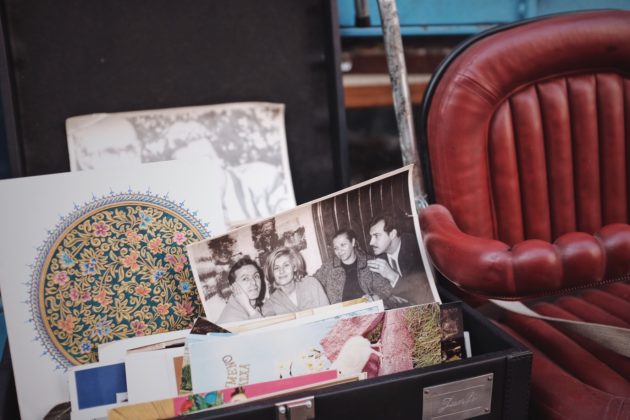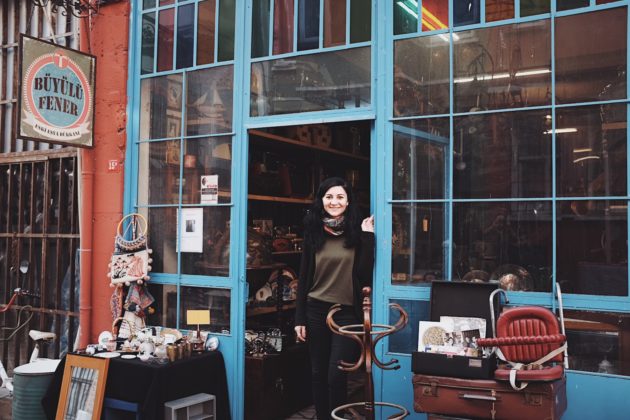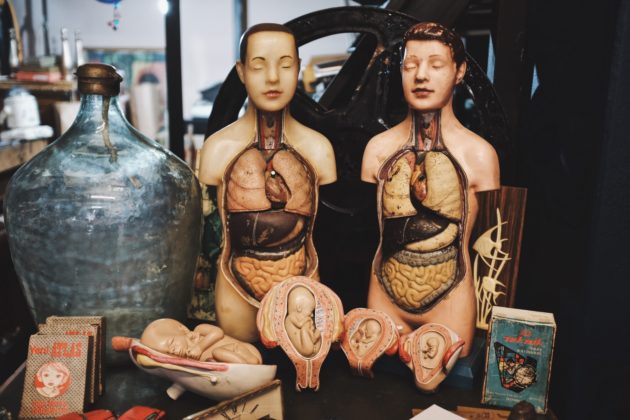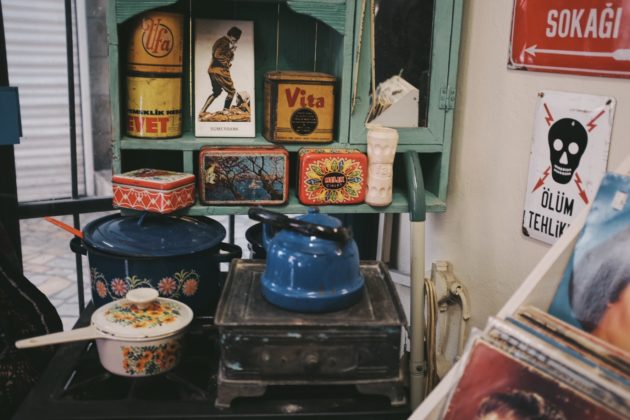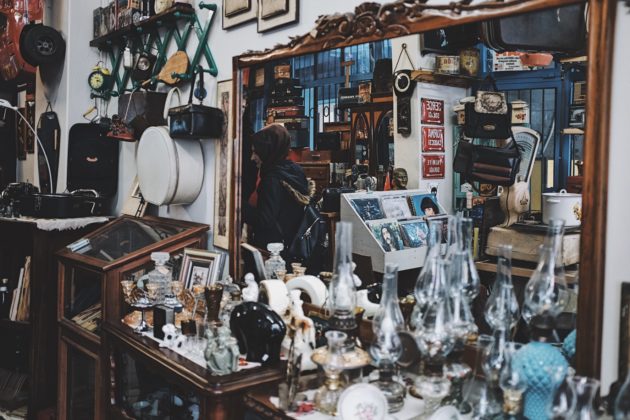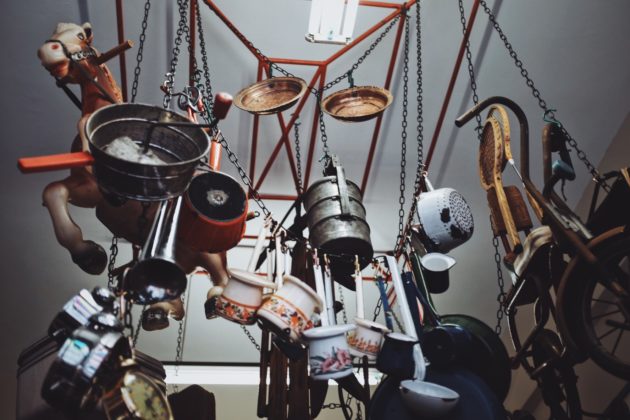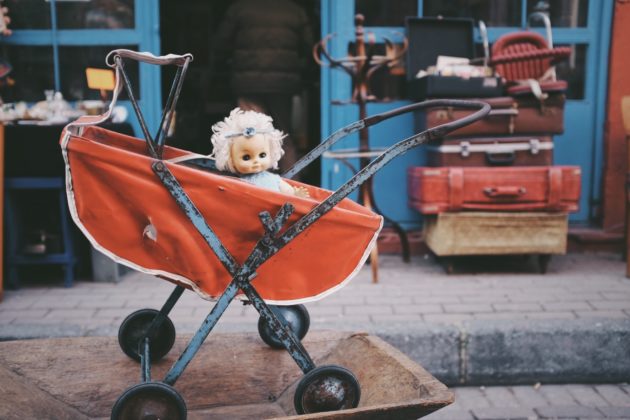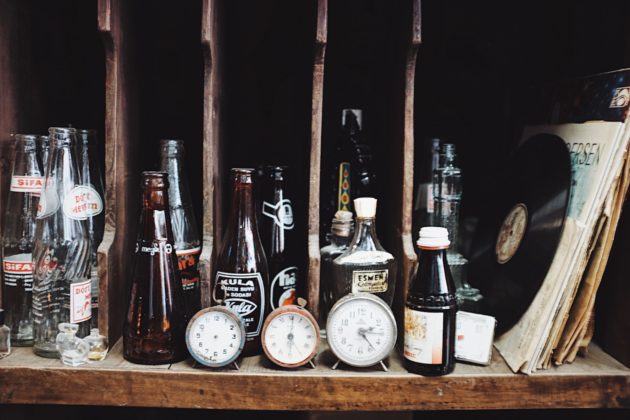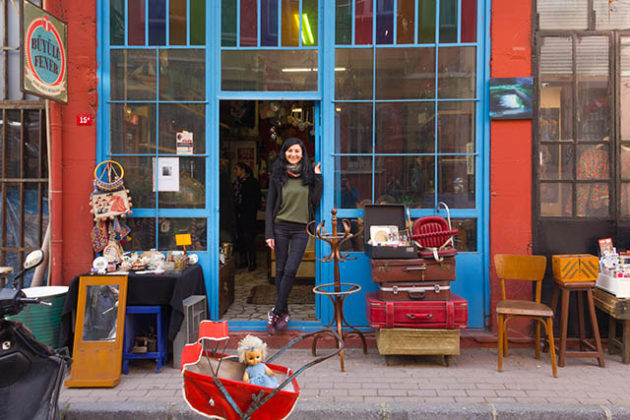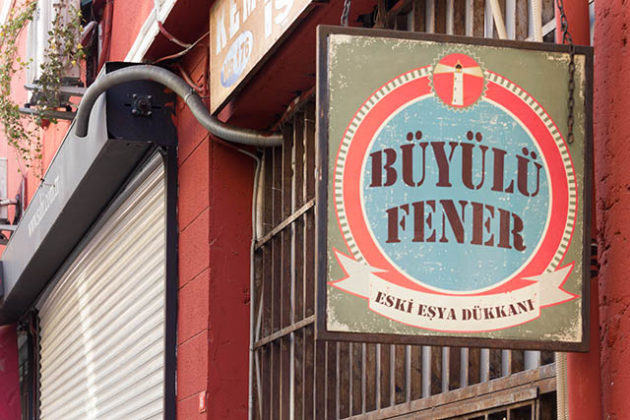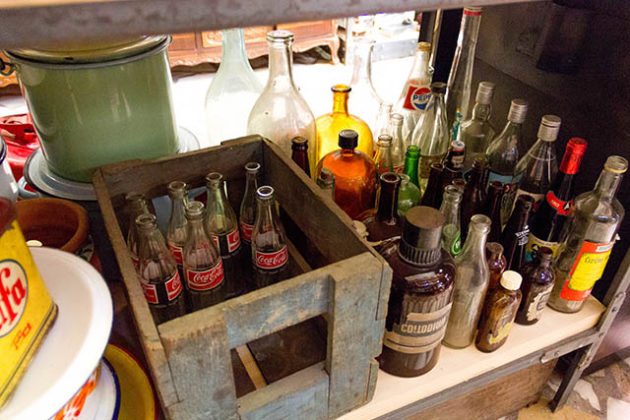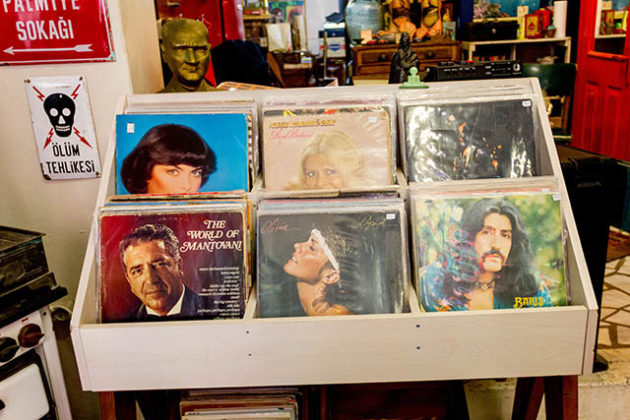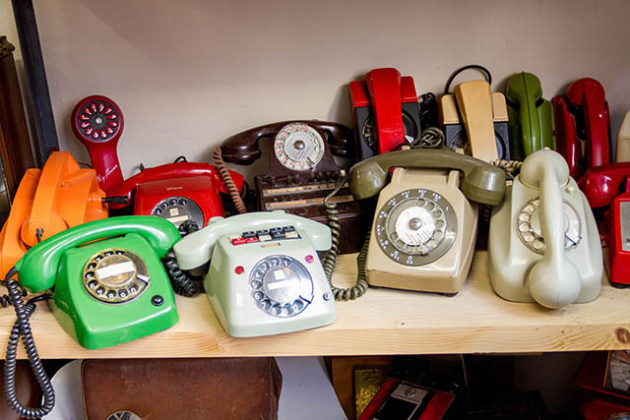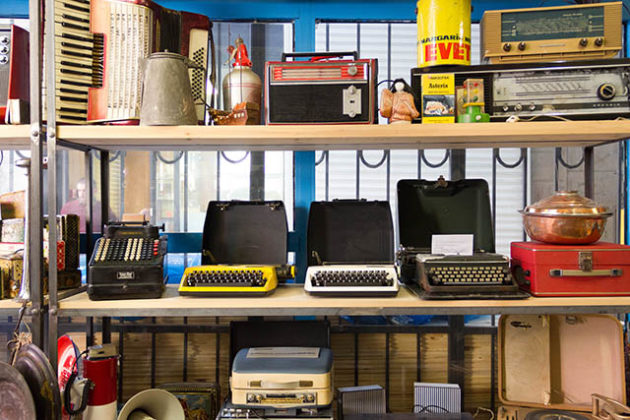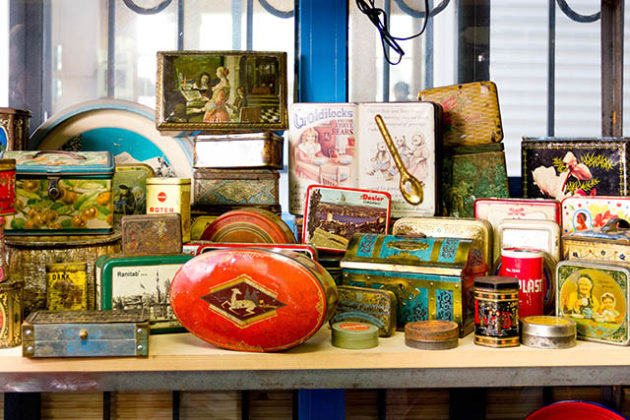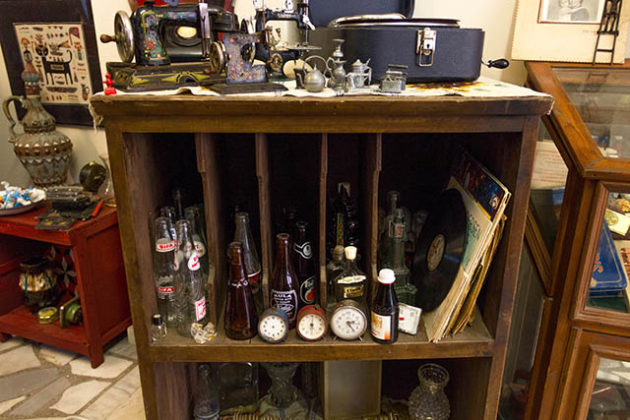A middle aged man passes under a vivid yet rustic sign that reads BÜYÜLÜ FENER, which fits like a puzzle piece among the colors of cafes and apartments that flood this block in Balat. He pushes open a glass door that rests under a row of rainbow stained glass. Once inside he’s greeted with a welcome from the owner, Gediz, as he scans the walls and shelves. This isn’t your typical antique shop, which have been popping up all over the neighborhood in the last couple years. Not just because Gediz is the only female owner in the area, but because instead of the other shops where you feel like you’re walking into an old Ottoman tea house, here it’s like you’ve entered the Art Director from Turkish Mad Men’s supply warehouse. On the walls are rows of small tube TVs, record players, and typewriters flashing with vibrant colors. One of the record players spins a song from the 1960s that only the Turks seem to recognize.
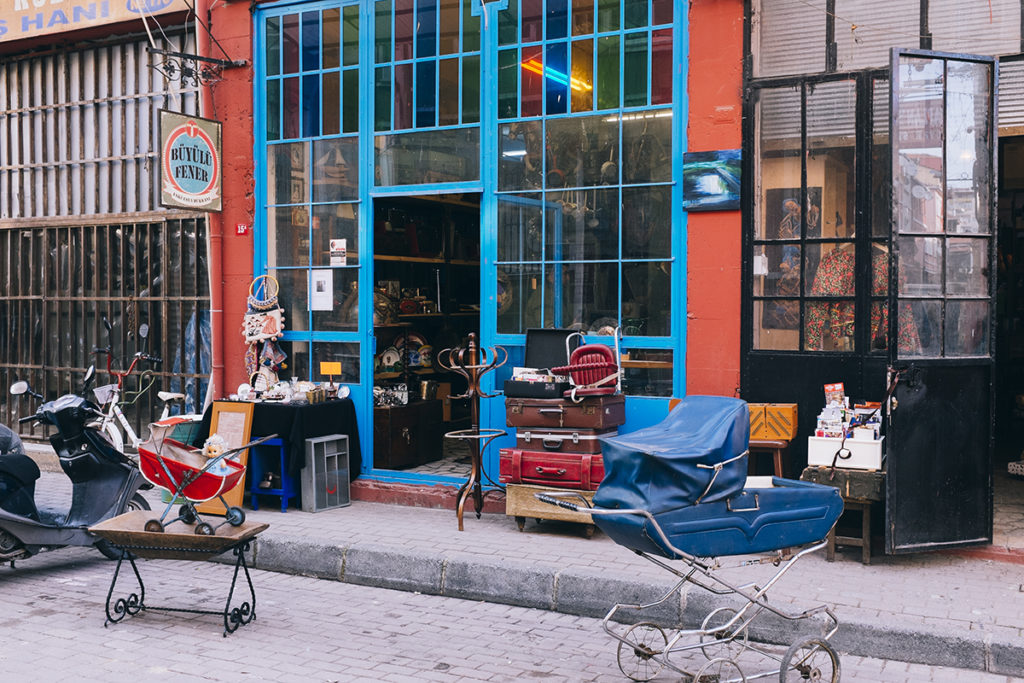
The man’s eyes stop on an unassuming collection of retro cigarette packages. “Can I buy just this one?” he asks. Gediz tells him of course, but that it’s not worth much without the rest of the collection. “That’s fine. They used to sell this box in Cyprus when I was a kid there. So, when I saw it it immediately brought me back to my time there as a child.”
And that’s why people come to Büyülü Fener (magic lantern in Turkish), not necessarily to find the next rare find of the antiquing world, but to bring back a fond memory or experience. Gediz told me that what really separates Büyülü Fener from the other antique stores is that hers isn’t one; it’s a nostalgia shop.
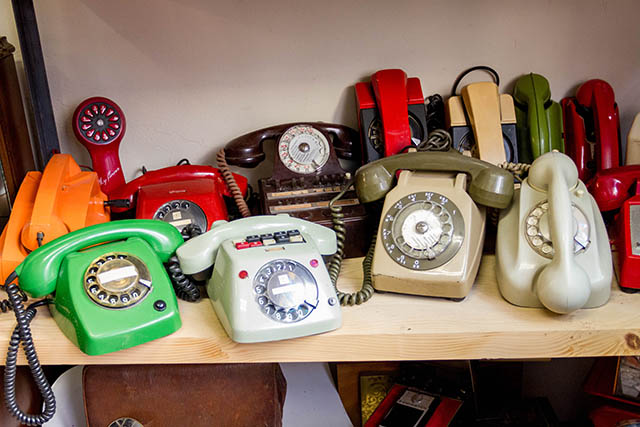
In a city that is rapidly modernizing, the gentrification can be dispiriting. And, when your commute consists of passing block after block of soviet style apartment buildings, you want to find the colors, diversity, and romance of the storied Istanbul. That’s what propelled Fener-Balat to become such a hotspot for tourists, expats, and locals alike. Büyülü Fener fits this neighborhood aesthetic perfectly. It’s what drew Gediz here in the first place. Cihangir had become flooded with overpriced housing and Karaköy had been overrun with chain stores, making a small business nearly impossible. But here, every business is personally owned and new people are moving in droves, but they haven’t destroyed the neighborhood’s character. In fact, as long as they adapt to their surrounding culture they can help enhance it. The neighbors across the street are Bulgarian immigrants on the first floor, Syrians on the 2nd, and from eastern Anatolia on the 3rd. Imams walk the street and wave at the employees from the nearby Ecumenical Patriarchate. Women with head scarves will chat with their neighbors in mini-skirts. Gediz says there’s a weird balance where if you don’t judge, no one will judge you. This is why Fener-Balat is where the city on the cusp of two worlds analogy comes alive. When you live in a sterile apartment and work a sterile job, it feels like the old Istanbul is dead, but you can still find it here.
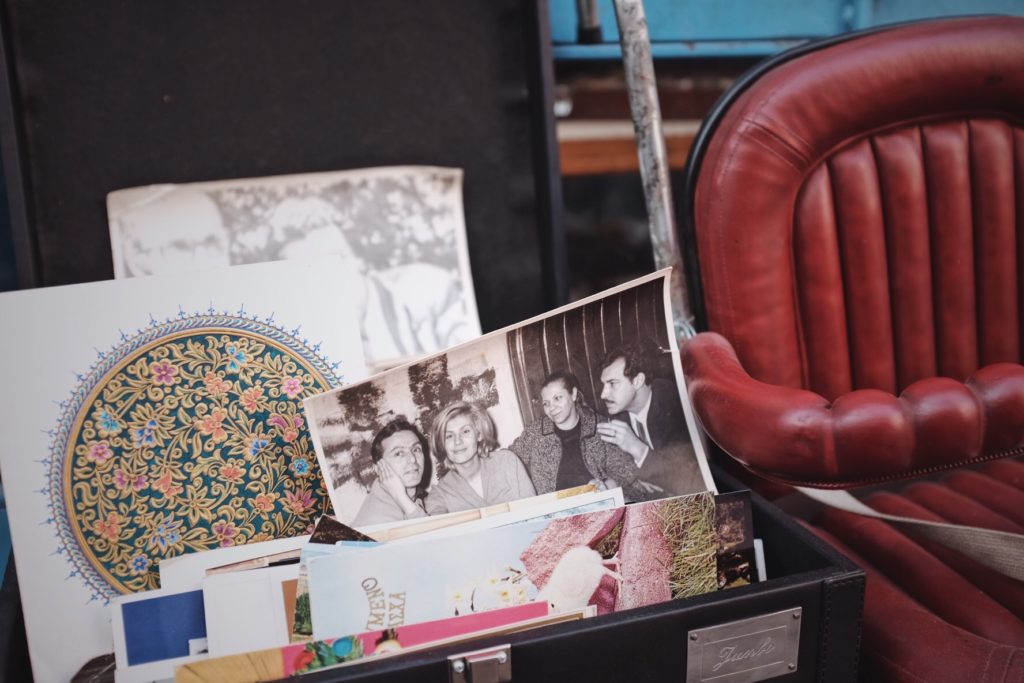
I always assumed that antique shops were a staple of the neighborhood, but apparently I was wrong. Büyülü Fener was only the 5th and opened a little over 2 years ago. Now there are 19, with that number changing every day. While the store may be new, Gediz tells me that opening it has been her dream since she was a teenager. After daring the corporate world for many years, while simultaneously filling her apartment to the brim, she decided to pursue her dream to open her own place and live the laid-back lifestyle of Balat.
She began collecting when she was 16. At first, it was anything that interested her, but then it slowly morphed into attaining collections as well. The evidence is on display everywhere. There’s an eclectic record collection with many hailing from Turkey’s rock heyday in the 1970s summed up with a Barış Manço print in the front row.
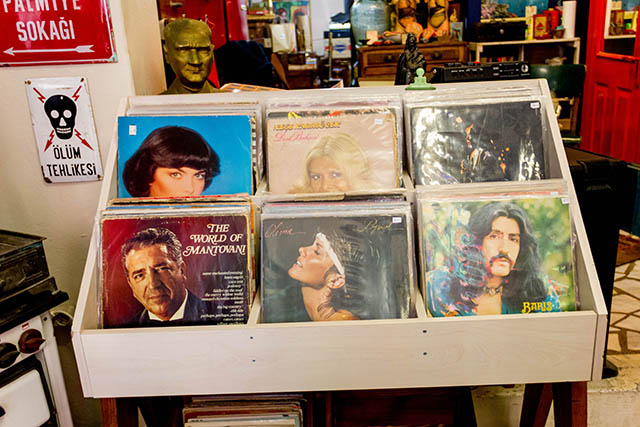
Apparently records are making a comeback and many people who buy them don’t even own the players. However, she still sells them, and they all work because Gediz and different specialists team up to restore all the gadgets and electronics in the store. She will buy paintings and photos that barely get settled on the wall before they’re sold. Retro gas lamps are probably the highest selling item for locals, but tourists love trinkets because they can fit them in their suitcase. There’s collections of old soda bottles, miniature alcohol bottles (still full), postcards, and a slew of things that you didn’t even know would make you feel nostalgic.
The nostalgia bug hits me hard when I see an old tin toy car that looks like a larger version of a Hot Wheels toy. Across from the entrance you’ll notice a giant one, like a Cadillac version of all those Fisher-Price commercials I saw as a kid where you actually can ride in the car. Not one to show bias, a miniature burgundy stroller, perfect for a toddler to play house in, rests opposite the car and in front of the original signage for Balat Hastanesi.
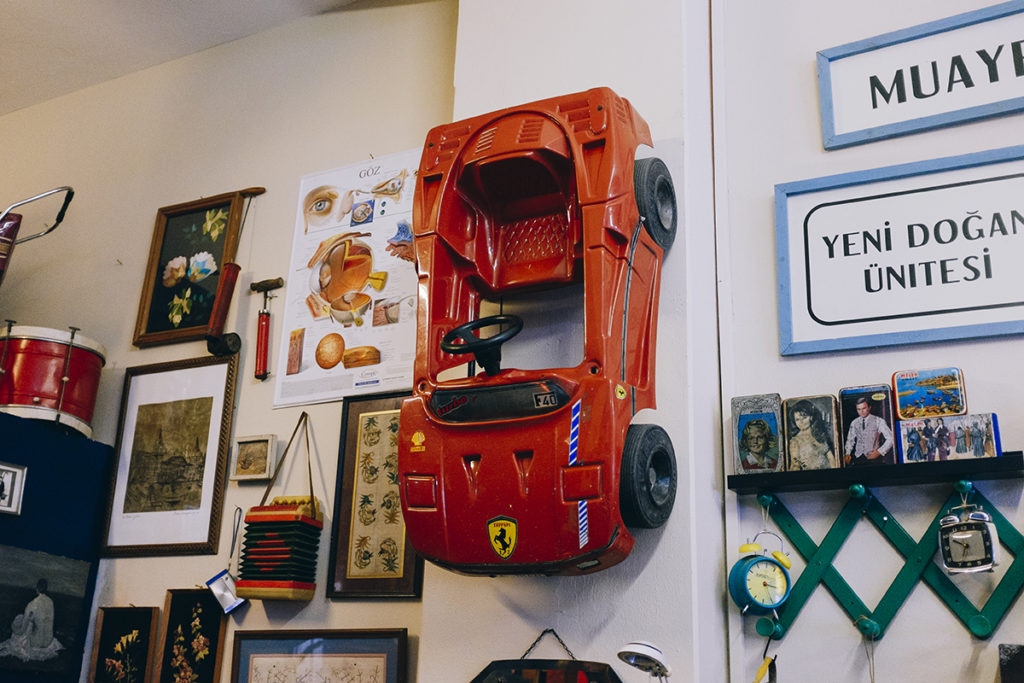
I bee-line my way towards the sign and begin sweeping through the box of Swiss and Turkish postcards underneath it, I can’t help but read all the messages people wrote their loved ones that now live on through the curious eyes that pry into them. It seems every item in the store has a story. A special one sits in the corner of the store on a 1950s era stove top. An old cast iron sauce pan lacquered in floral patterned paint looks banal at first. But, Gediz tells me these were exclusively made in Western Europe and discontinued there about 40 years ago with the development of lightweight cooking materials.
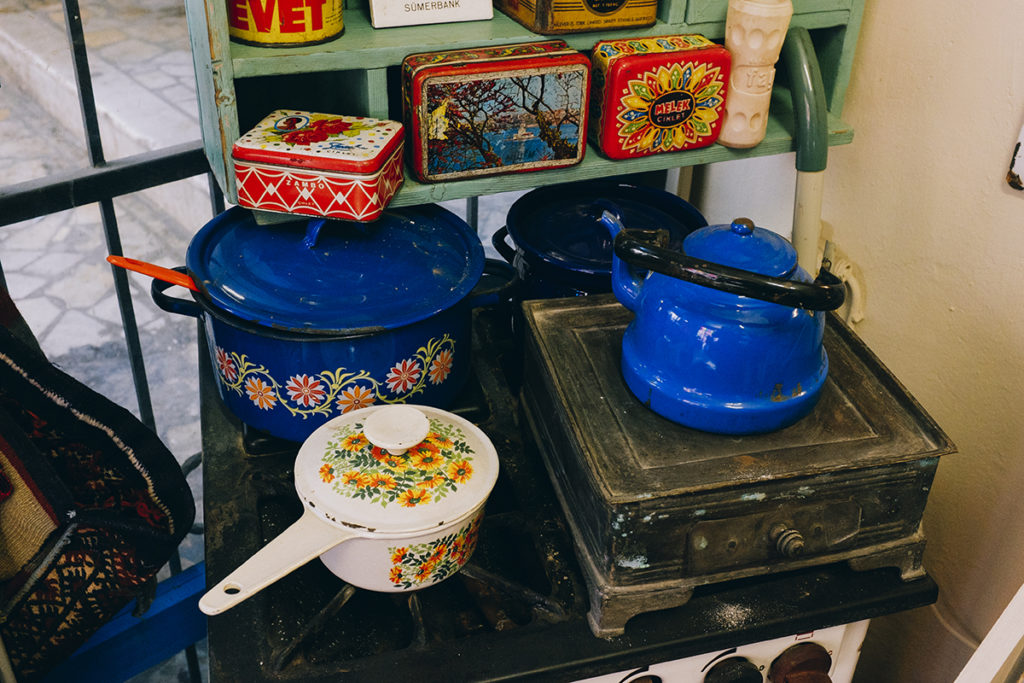
She lifts up the top to an engraved “Made in Turkey”. “It’s the only one I’ve ever seen in all my years of collecting that was made here,” she says. So, maybe the rare finds are here as well.
I finally ask her how she knows what to buy and that it will sell? She says it’s impossible to predict what items people will buy, so she gave up trying. Instead, she buys things that she’d want to decorate her home with and that sometimes that’s beyond just an eye for commerce. “It’s hard for me to sell some of this stuff because I like it and I become sort of attached to it,” Gediz tells me. She then shows me her favorite item, a toy robot resembling R2D2 and when you open its head there’s a cassette player inside. I ask her how much she would charge for something like that. “It’s not for sale. This is still part of my personal collection.”
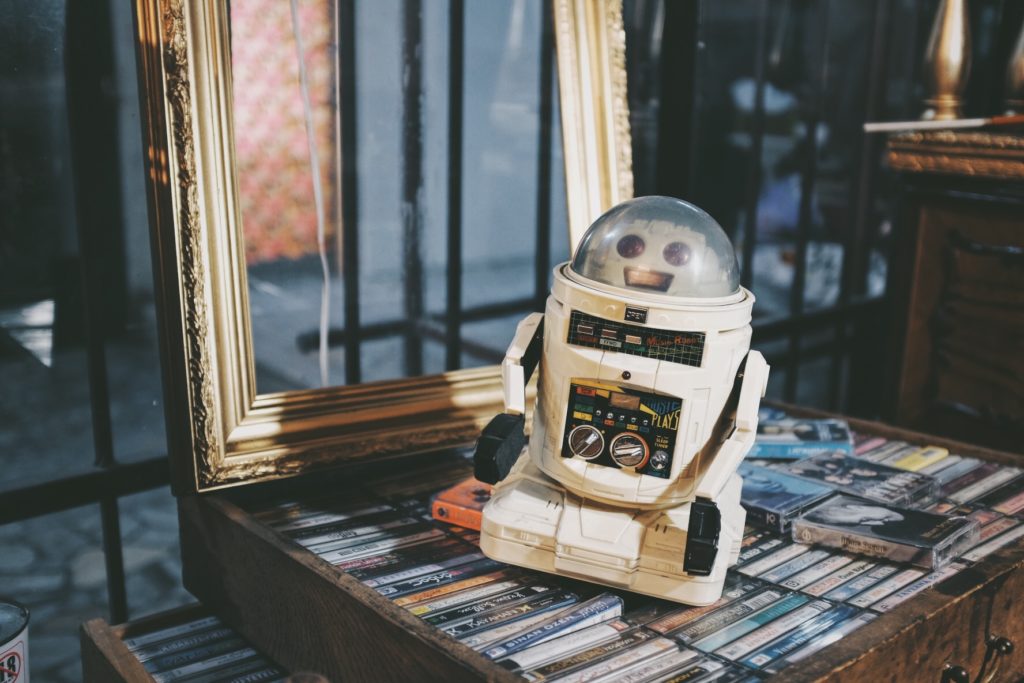
If you think you can pry it from her, come to Büyülü Fener in Balat from 10-7 any day but Monday and try.
For best results, click to enlarge image.
Featured image courtesy of Sveta Nekrasova.








